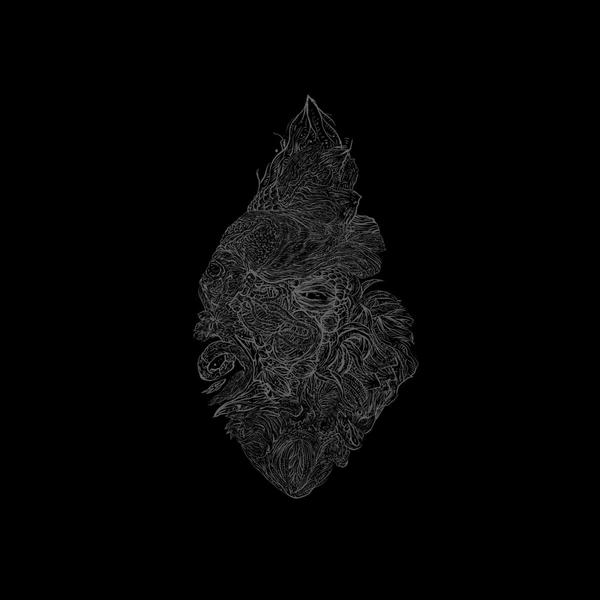
“Aiming For Greatness” : Best Fit speaks to Phoenix
“I’ve just woken up, so I might be a bit slow,” apologises Laurent ‘Branco’ Brancowitz. But acting as a representative for his French indie group Phoenix, it soon becomes apparent that the rustiness can only be blamed on the stop-and-go Skype connection as we delve into the band’s upcoming fifth album Bankrupt! as well as the flesh and blood of France’s most surprising success story of the last decade.
“New York is dry and cold, but it’s nice”, says Branco in his thick French accent. For someone like me, raised on British pastures, it’s an accent impossible to ignore – simultaneously the butt of every post-WWII comic’s joke and object of affection for women and men alike. But at this moment, his accent isn’t something appreciated on a superficial level, but gives insight into what’s changed and what’s stayed the same since they released their last, hugely successful album, Wolfgang Amadeus Phoenix. “Nothing changed really, it’s a bit sad,” Branco reflects. “When it’s just the four of us it’s the same old thing, you know, and that’s what we like about it.”
The fabric of the band hasn’t change since finding international success with Wolfgang Amadeus Phoenix – a record that spawned indie dance floor anthems like ‘1901’ and ‘Lisztomania’ – much to the joy of their seasoned fans. But nor did the band stagnate, instead using the worldwide success that bagged them a Grammy to ‘experiment’ – a word often met with both excitement and dismay. “This time, we knew that we’d have more possibilities to do crazy things, you know? We know that we can find things and that people will give us at least one chance; the pressure wasn’t a negative thing. This kind of pressure was a positive thing for us.”
Added pressure wasn’t the only thing that changed, but something that was more directly related to the band also became more apparent and important too. Spending their youths listening to British and American music and seeing French music and art as something inferior, they suddenly began to appreciate the art of their mother country for the first time while miles away from their home, in the very city that this interview took place. “I mean, I don’t know what exactly happened but we were in New York and suddenly this melancholy came over me and I watched all of Rohmer – I couldn’t stop. It was like falling in love with something we knew so well. I think it was related to the fact that we were living in China Town, something so different – and it was a bizarre loneliness.”
{pagebreak}
A loneliness that precipitated some of the newer aspects to the upcoming album. While they’d managed to avoid being labelled a French band attempting to write the indie music born out of British and American streets, probably because of their sheer passion and talent for creating music, on Bankrupt! they went in on themselves. Having successfully spent their careers circumventing their geographic identity, they now decided to explore it fully. “It’s the first time that I think I’ve understood the uniqueness and charm of French music. When I was younger I just wanted to escape France and I hated people like Éric Rohmer. But this time, I understood the beauty of it. I think this time we understood that we had those things that other people didn’t recognise. Those little gems of emotion that are very unique to France and haven’t been explored in popular music that we could use. There were a lot of sounds and chord changes that remind us of very particular things that come from French music.”
Somewhat ironically, incorporating this aspect into their music made for a more exhaustive recording process. “It’s a very bizarre chemistry but it’s working. It takes a lot of time. But that’s because we know each other so well. That we could talk about anything for hours – the number of things we talked about in these two years, I wish there was a list, it would be a very fun list!” But despite the fact that this process was perhaps more laboured and less instinctual than previous sessions, it was something that they were willing to do in order to fulfil their follow up to Wolfgang Amadeus Phoenix. ”It’s just that usually when you are doing a song, you know that you have to catch people’s attention and give them that instant sugar rush. This time we knew that we could delay the reward a bit and add a bit of complexity. For us, the songs that we prefer are the ones that took a bit of time. The kind of albums that you have to work a bit for the listener to enjoy them. We wanted to explore this and we knew we could.”
Still, more than most bands that have found break out success in recent years, their sound has always been synonymous with Friday night pleasure seekers as opposed to Sunday night book readers. The lyrical themes of this album go much deeper than of their previous albums however, taking a humanist trajectory, and reflecting on identity, or at least a crisis of it. “We realised that there was a theme after making the album – and it would be the tension between mediocrity and the desire of greatness. I think they are in every song – we didn’t realise though, it just happened and the title of the album is about that – aiming for greatness but knowing there was possibility for total failure. That’s the theme of it.”
{pagebreak}
But there will inevitably be a number of listeners who only listen to the surface and don’t delve into the deeper meaning, especially when the band are so well known for their popular, party-inducing music. Is this something that’s frustrating for the band? ”You know we were French kids listening to American and English music and we didn’t really understand what they were all talking about,” Branco replies. “We got a few words and a few sentences but the exact meaning, we didn’t get it until much later. And we realise that the meaning we projected in those songs when we were 14 when we read better and read these lyrics. But we kept this idea very close to us. You leave the space for people to create the beauty of it. We have to create the space and then something good can happen. It’s not just about presenting something; it has to reflect something that could be universal. This kind of thing can lead to beauty, but it can lead to ugliness for sure. But whatever we are doing, we always try to leave this space.”
Having recently released the lead single from Bankrupt!, ‘Entertainment’, listeners and critics are beginning to form their own opinions on the forthcoming record – I point comically to a YouTube comment which states that the song makes the listener want to eat Chinese food. ” I like this comment! See, it’s exciting. We’ve been in a cave for so long – in the studio for two years, which is too much. And we are overwhelmed to see that there are people living outside of it.” While it’s exciting, Branco states that the this new found interaction is quite overwhelming.
And so it appears that the Phoenix’s journey since the last release has been about closing up juxtaposition, whether they’ve known it or not. From young French Anglophiles making albums that went unduly unnoticed outside of France, to making a triumphant return to their geographic identity as a group known worldwide having somewhat ironically written an album about existential tensions of mediocrity and greatness, the band are now coming out of their self-proclaimed cave of the studio to release their hotly anticipated new album. So it’d seem that the space they choose to leave to interpretation is starting to close up. “The contrast is quite heavy,” he states, “but that’s the life of a musician. It’s full of contrast.”
Bankrupt! will be released on 22 April through Loyaute/Glassnote.
Get the Best Fit take on the week in music direct to your inbox every Friday

Lady Gaga
Mayhem

Rebecca Black
SALVATION

Sasami
Blood On the Silver Screen





